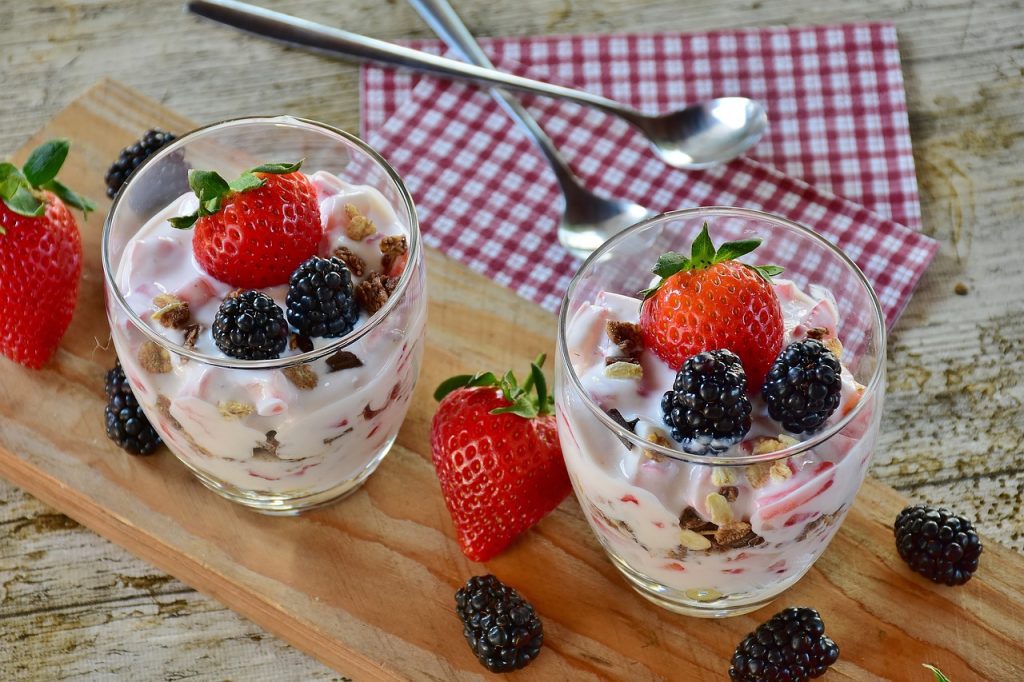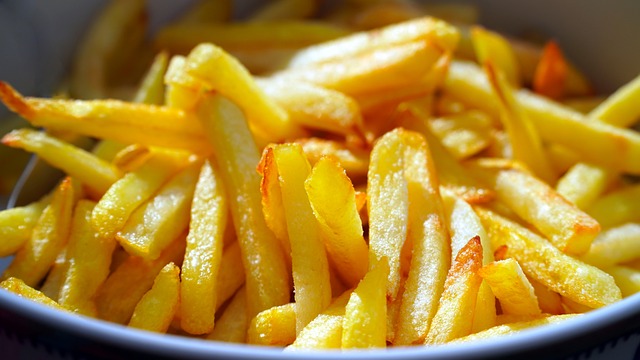Acne is a common skin condition that affects millions of people worldwide. Many factors contribute to the development of acne, including genetics and hormonal imbalances. However, recent research has highlighted the role of diet in acne development. What we eat can have a significant impact on the health of our skin. Also, certain foods may trigger acne breakouts or exacerbate existing ones. In this blog post, we will explore the link between diet and acne. We’ll also discuss what to eat, and what to avoid to promote healthy, clear skin. From low-glycemic-index foods to antioxidants, we will cover the latest research on how diet can impact acne and provide practical tips for achieving clearer, healthier skin through dietary choices.
Foods to Eat for Acne Prevention and Treatment
Acne is a common skin condition that affects people of all ages and can be challenging to manage. There are many over-the-counter and prescription treatments available. However, recent research has highlighted the potential benefits of dietary changes in preventing and treating acne. What we eat can have a significant impact on our skin’s health. Plus, incorporating certain foods into our diets can help promote clear, healthy skin. In this section, we will discuss the foods to eat for acne prevention and treatment. We’ll also explore the latest research on how specific nutrients, vitamins, and minerals can help reduce acne’s severity and frequency. From fatty fish and leafy greens to probiotics and zinc-rich foods, we will provide practical tips for incorporating acne-fighting foods into your diet and achieving clearer, healthier skin.
Foods Beneficial for Acne Prevention and Treatment

There is growing evidence that suggests certain foods can help prevent and treat acne. Here are some of the foods that have been found to be beneficial:
- Fatty Fish: Fatty fish like salmon, mackerel, and sardines are excellent sources of omega-3 fatty acids, which have anti-inflammatory properties. Studies have shown that people who consume more omega-3s tend to have fewer acne breakouts.
- Leafy Greens: Leafy greens like spinach and kale are high in antioxidants. These can help reduce inflammation in the body and promote healthy skin.
- Probiotics: Probiotics are beneficial bacteria that live in our gut and help keep our digestive system healthy. Studies have shown that taking probiotics can help reduce inflammation and improve skin health.
- Zinc-rich Foods: Zinc is a mineral that plays a critical role in skin health. Foods like oysters, pumpkin seeds, and beef are rich in zinc and can help reduce inflammation and promote healthy skin.
- Low-Glycemic Index Foods: Foods with a low glycemic index, such as whole grains, fruits, and vegetables, are digested more slowly and do not cause spikes in blood sugar levels. Studies have shown that eating a low-glycemic index diet can help reduce acne breakouts.
- Green Tea: Green tea contains antioxidants called catechins, which have been shown to reduce inflammation and promote healthy skin. Drinking green tea regularly can help reduce the severity of acne.
Overall, incorporating these foods into your diet can help promote healthy. They can also reduce the frequency and severity of acne breakouts.
How the Foods Above Help Reduce Inflammation and Regulate Sebum Production
Acne is often caused by inflammation and an overproduction of sebum, the oily substance that our skin produces. The foods mentioned above can help reduce inflammation and regulate sebum production, leading to fewer acne breakouts.
Fatty fish, such as salmon, mackerel, and sardines, contain omega-3 fatty acids, which have anti-inflammatory properties. Fatty acids help reduce inflammation in the body, including in the skin. This can help reduce the severity and frequency of acne breakouts. Additionally, omega-3s help regulate sebum production, which can also reduce acne breakouts.
Leafy greens, such as spinach and kale, are high in antioxidants, which have anti-inflammatory properties. These antioxidants can help reduce inflammation in the skin and regulate sebum production, leading to fewer acne breakouts.
Healthy Digestive System
Probiotics, which are beneficial bacteria found in the gut, help keep our digestive system healthy. Studies have shown that taking probiotics can help reduce inflammation in the body. Also, they improve skin health, leading to fewer acne breakouts.
Zinc is a mineral that plays a critical role in skin health. Zinc helps regulate sebum production and has anti-inflammatory properties, which can help reduce the frequency and severity of acne breakouts.
Low-glycemic index foods, such as whole grains, fruits, and vegetables, are digested more slowly. This helps as the slow digestion does not cause spikes in blood sugar levels. Eating a low-glycemic index diet can help regulate insulin levels and reduce inflammation in the body. This can lead to fewer acne breakouts.
Green tea contains antioxidants called catechins, which have anti-inflammatory properties. Drinking green tea regularly can help reduce inflammation in the skin, regulate sebum production, and improve skin health, leading to fewer acne breakouts.
Recognising there’s a link between diet and acne and incorporating the right foods into your diet can help reduce inflammation and regulate sebum production, which can lead to fewer acne breakouts and healthier skin.
Foods to Avoid for Acne Prevention and Treatment

Recognising there’s a link between diet and acne and incorporating the right foods into your diet is great. However, it’s equally important to understand that there are wrong foods that affect your skin. There are many over-the-counter and prescription treatments available. However, recent research has highlighted the potential benefits of dietary changes in preventing and treating acne. In addition to incorporating acne-fighting foods into our diets, avoiding certain foods can also help promote healthy, clear skin. In this section, we will discuss the foods to avoid for acne prevention and treatment. We’ll also explore the latest research on how specific foods can trigger acne breakouts or exacerbate existing ones. From sugary and processed foods to dairy and high-glycemic index foods, we will provide practical tips for avoiding acne-triggering foods and achieving clearer, healthier skin.
Foods That Are Linked to Acne Breakouts
Certain foods are linked to acne breakouts and should be avoided to promote healthy, clear skin. Here are some of the foods to avoid:
- Sugary and Processed Foods: Eating foods high in sugar and refined carbohydrates can cause a spike in insulin levels. This can lead to an increase in sebum production, which can clog pores and lead to acne breakouts.
- Dairy Products: Dairy products contain hormones. These can contribute to an increase in sebum production, leading to clogged pores and acne breakouts. Studies have also found a link between dairy consumption and acne breakouts.
- High-Glycemic Index Foods: High-glycemic index foods, such as white bread, pasta, and rice, are digested quickly and can cause a spike in insulin levels, leading to an increase in sebum production and acne breakouts.
- Fried and Greasy Foods: Fried and greasy foods can cause an increase in sebum production. This can clog pores, leading to acne breakouts.
- Chocolate: The link between chocolate and acne is still debated. However, some studies have suggested that eating chocolate can contribute to acne breakouts.
- Spicy Foods: Spicy foods can cause an increase in blood flow to the skin. Spicy foods can lead to inflammation and acne breakouts in some people.
Overall, avoiding these foods can help reduce the risk of acne breakouts and promote healthy, clear skin. However, it’s essential to note that everyone’s body is different, and what triggers acne breakouts for one person may not be the same for another. Consulting with a healthcare professional or a registered dietitian can help identify specific foods that may be contributing to acne breakouts and develop a personalised diet plan to promote healthy skin.
How the Foods Above Increase Inflammation and Sebum Production
Certain foods can increase inflammation and sebum production, leading to more frequent and severe acne breakouts. Here’s how:
- Sugary and Processed Foods: Foods high in sugar and refined carbohydrates can cause a spike in insulin levels, leading to an increase in sebum production. Additionally, these foods can trigger inflammation in the body, leading to the production of cytokines, which can contribute to acne breakouts.
- Dairy Products: Dairy products contain hormones that can increase sebum production, leading to clogged pores and acne breakouts. Additionally, dairy products can also trigger inflammation in the body, which can contribute to acne breakouts.
- High-Glycemic Index Foods: High-glycemic index foods cause a spike in insulin levels, leading to an increase in sebum production. These foods can also trigger inflammation in the body, leading to acne breakouts.
- Fried and Greasy Foods: Fried and greasy foods can increase sebum production, leading to clogged pores and acne breakouts. Additionally, these foods can also trigger inflammation in the body, which can contribute to acne breakouts.
- Chocolate: Chocolate contains high levels of sugar and dairy, both of which can contribute to acne breakouts. Additionally, some studies suggest that chocolate may also trigger inflammation in the body, leading to acne breakouts.
- Spicy Foods: Spicy foods can increase blood flow to the skin, leading to inflammation and acne breakouts in some people.
Overall, consuming these foods regularly can contribute to inflammation and sebum production in the body, leading to more frequent and severe acne breakouts. Avoiding or limiting these foods can help reduce the risk of acne breakouts and promote healthy, clear skin.
Lifestyle Factors That Can Impact Acne

Acne is a common skin condition that affects millions of people worldwide. While there are many treatments available for acne, there are also lifestyle factors that can impact the severity and frequency of acne breakouts. From stress and sleep to exercise and skincare routines, our daily habits can have a significant impact on our skin’s health. In this section, we will discuss the lifestyle factors that can impact acne, exploring the latest research on how specific habits can contribute to acne breakouts. By understanding how our daily choices affect our skin, we can make informed decisions about how to promote healthy, clear skin and reduce the risk of acne breakouts.
Lifestyle Factors
Lifestyle factors can have a significant impact on the development and severity of acne. Here are some of the key lifestyle factors that can impact acne:
- Stress: Stress can trigger the production of cortisol, a hormone that can lead to an increase in sebum production, clogged pores, and acne breakouts.
- Sleep: Lack of sleep or poor sleep quality can lead to an increase in cortisol production, which can contribute to acne breakouts.
- Diet: A diet high in sugar, refined carbohydrates, and dairy products can contribute to an increase in sebum production and inflammation, leading to acne breakouts.
- Skincare Routine: Using harsh skincare products or not properly removing makeup can lead to clogged pores and acne breakouts.
- Exercise: While exercise can be beneficial for overall health, not properly cleansing the skin after exercise can lead to clogged pores and acne breakouts.
- Smoking: Smoking can lead to a decrease in blood flow to the skin, reducing the skin’s ability to heal and increasing the risk of acne breakouts.
- Hormones: Hormonal changes, such as those during puberty, menstruation, or pregnancy, can lead to an increase in sebum production and acne breakouts.
Overall, these lifestyle factors can impact acne development and severity. Understanding how our daily choices impact our skin can help us make informed decisions to promote healthy, clear skin and reduce the risk of acne breakouts. By managing stress, getting enough sleep, eating a balanced diet, using gentle skincare products, properly cleansing after exercise, avoiding smoking, and managing hormonal changes, we can take proactive steps to promote healthy, clear skin.
How Lifestyle Factors Affect Hormone Balance and Inflammation
The lifestyle factors discussed above can affect hormone balance and inflammation in the body, leading to more frequent and severe acne breakouts. Here’s how:
- Stress: Chronic stress can lead to an increase in the production of cortisol, a hormone that can increase sebum production and contribute to inflammation in the body. This inflammation can lead to clogged pores and acne breakouts.
- Sleep: Lack of sleep or poor sleep quality can lead to an increase in cortisol production, which can contribute to inflammation and acne breakouts.
- Diet: A diet high in sugar, refined carbohydrates, and dairy products can contribute to inflammation in the body, leading to an increase in sebum production and acne breakouts.
- Skincare Routine: Using harsh skincare products or not properly removing makeup can irritate the skin, leading to inflammation and acne breakouts.
- Exercise: While exercise can be beneficial for overall health, not properly cleansing the skin after exercise can lead to clogged pores and acne breakouts.
- Smoking: Smoking can lead to a decrease in blood flow to the skin, reducing the skin’s ability to heal and increasing the risk of inflammation and acne breakouts.
- Hormones: Hormonal changes, such as those during puberty, menstruation, or pregnancy, can lead to an increase in sebum production and inflammation in the body, contributing to acne breakouts.
Overall, these lifestyle factors can disrupt hormone balance and contribute to inflammation in the body, leading to an increase in sebum production and acne breakouts. By managing stress, getting enough sleep, eating a balanced diet, using gentle skincare products, properly cleansing after exercise, avoiding smoking, and managing hormonal changes, we can help regulate hormone balance and reduce inflammation in the body, promoting healthy, clear skin.
Wrapping Up the Link Between Diet and Acne
In conclusion, there is a strong link between diet and acne. Consuming foods that are high in antioxidants, omega-3 fatty acids, and fibre can help reduce inflammation and regulate sebum production, leading to fewer acne breakouts. On the other hand, consuming foods that are high in sugar, refined carbohydrates, and dairy products can increase inflammation and sebum production, leading to more frequent and severe acne breakouts.
By making simple dietary changes such as incorporating more fruits, vegetables, and healthy fats into our diets while avoiding highly processed foods and sugary drinks, we can help promote healthy, clear skin. It’s important to note that everyone’s skin is different, and what works for one person may not work for another. Therefore, it’s important to consult a healthcare provider or dermatologist if you’re struggling with acne to determine the best course of treatment for your specific needs. Overall, a healthy diet can be an important part of an overall acne treatment plan.
Read More
- Tips for Boosting Confidence While Dealing with Acne
- The Link Between Obesity and Sleep Apnea
- Natural Remedies for Acne: Fact and Fiction
- Debunking 5 Common Myths About Acne
- Alcohol Consumption: Damage to the Body, Mind, and Family
Disclaimer: The information provided on Healthy Lifestyles for All is intended for general educational purposes only and should not be considered as medical advice. Please consult with your GP or other health professional before making any significant changes to your diet, exercise routine, or any other aspect of your lifestyle. We are not responsible for any adverse effects or consequences resulting from the use of the information provided on our blog.
Comments: I hope you enjoyed reading this post as much as I enjoyed writing it. If you liked it, please leave a comment. If you didn’t like it, disagree with something I have written (I’m okay with that), or think I got something wrong (that’s okay too), please leave a comment as well. We only truly learn from our mistakes, so I am happy to have mine pointed out.
Affiliate Links: Please also note that I may make a small amount of money if you buy one of the products I recommend in any of my blog posts. Rest assured that I have done my own due diligence, and only recommend products that have been tried and tested, and have extremely good feedback. Additionally, many of the products I recommend have 30 or 60-day money-back guarantees, so you can buy in the confidence that if a particular product is not right for you, you can get a refund.




